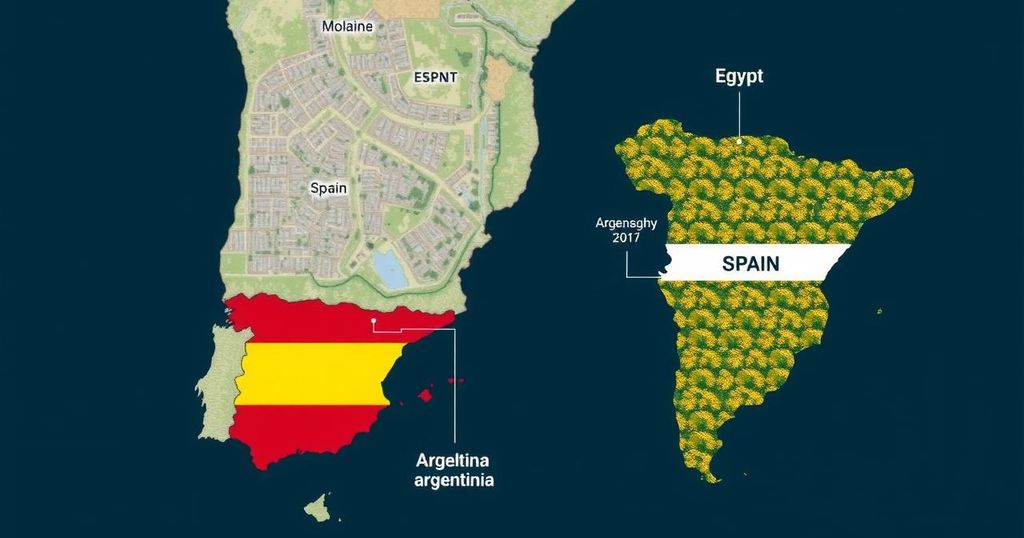Mali, Burkina Faso, and Niger Introduce Biometric Passports Following ECOWAS Withdrawal
Summary
Mali, Burkina Faso, and Niger are set to launch new biometric passports as part of their recent withdrawal from ECOWAS. This initiative aims to streamline travel documents among the Sahel states and enhance interconnectivity amidst ongoing regional cooperation efforts following a military coup in Burkina Faso. The new passports will notably lack ECOWAS branding and are expected to provide an alternative means for identification and integration in the region.
Malian junta leader Assimi Goita has formally declared the launch of new biometric passports for Mali, Burkina Faso, and Niger, marking a significant step forward in the cooperation among the Sahelian states following their recent withdrawal from the Economic Community of West African States (ECOWAS). This initiative aims to establish the Alliance of Sahel States (AES) and to standardize travel documentation across the region. In his announcement, Goita highlighted the impending issuance of a new biometric passport as part of efforts to enhance interconnectivity among these nations through improved infrastructure in transport, communications, and information technology. The unveiling of Burkina Faso’s biometric passport on September 4, 2024, without the ECOWAS insignia, epitomized the nation’s commitment to dissociate itself from the regional organization following its military coup. Mahamadou Sana, the security minister, stated, “On this passport, there’s no ECOWAS logo, and no mention of ECOWAS either. Since January, Burkina Faso has decided to withdraw from this body, and this is just a realisation of the action already taken by Burkina Faso.” This new passport has been produced in collaboration with the Chinese biometrics firm Emptech. In January 2024, Mali, Burkina Faso, and Niger collectively confirmed their decision to exit the 15-member ECOWAS. This withdrawal has raised significant concerns regarding the implications on freedom of movement and the unified market within the 400-million populace of the region, which has been functioning under ECOWAS for the past five decades. Particularly alarming is the prospect that citizens from the withdrawing nations may lose access to the ECOWAS passport and biometric ID card, in addition to exclusion from the World Bank-supported WURI digital ID program, which benefits numerous ECOWAS member states, including Guinea, Côte d’Ivoire, Togo, Benin, Burkina Faso, and Niger. Conversely, the anticipated rollout of the new passport by the alliance of Sahel states presents a potential remedy for these challenges, offering an alternative framework for regional identification and integration. In alignment with its digital infrastructure enhancement objectives, Burkina Faso secured a $150 million financial injection from the World Bank’s International Development Association (IDA) for its “Digital Acceleration Project,” which is expected to bolster public services and digital competencies, thereby complementing the biometric passport initiative and promoting regional connectivity.
The Sahel region, comprising Mali, Burkina Faso, and Niger, has seen significant political turmoil, leading to military coups and subsequent changes in governance. Historically, these countries have been part of the Economic Community of West African States (ECOWAS), which facilitates economic integration and promotes stability among its members. However, their recent withdrawal from ECOWAS signifies a shift towards forming a more independent regional alliance, catalyzed by security and governance issues. The introduction of biometric passports in this context is aimed at fortifying the sovereignty of these nations and enhancing intra-regional travel and cooperation.
The decision by Mali, Burkina Faso, and Niger to introduce biometric passports reflects a pivotal shift towards regional autonomy following their exit from ECOWAS. While the move raises concerns about the implications for freedom of movement and integration among its citizens, it simultaneously offers a framework for establishing a unified identification system within the newly formed Alliance of Sahel States. This initiative could greatly enhance regional connectivity, facilitated by advancements in digital infrastructure and technology.
Original Source: techpoint.africa







Post Comment